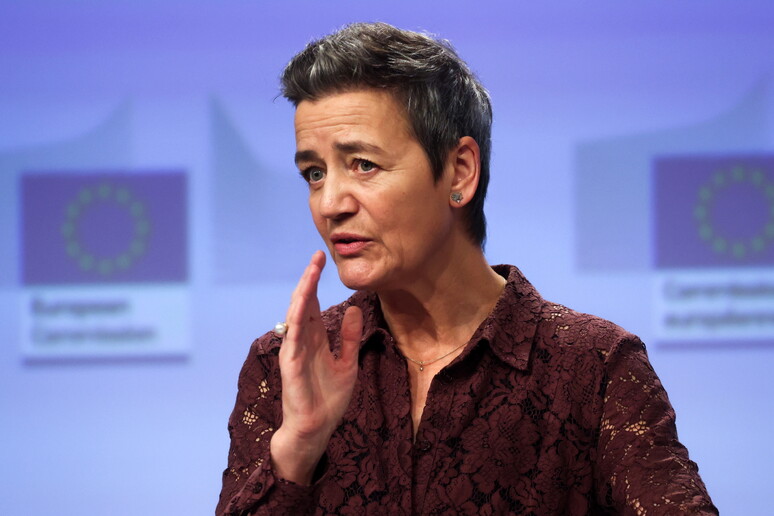(by Sabina Rosset)
The European Commission (EC) is
responding to the rapid acceleration of artificial intelligence
(AI) and tools such as ChatGpt with a package of measures
assisting start-ups and small and medium-sized enterprises
(SMEs) working in AI in order to stimulate the development of
models and applications in generative intelligence.
At the heart of the package lie 'artificial intelligence
factories', ecosystems surrounding public European
supercomputers with related technological and human resources.
"In order to develop artificial intelligence calculating
capacity is needed. There is a lot of it. That is why we want to
give SMEs and start-ups privileged access to the European
supercomputer network. We are committed to innovation in and
using artificial intelligence and we will do our best to build a
thriving artificial intelligence ecosystem in Europe," said
Commission Vice-President Margrethe Vestager.
Artificial intelligence factories "bring together the 'raw
materials' for AI: computing power, data, algorithms and
talent," emphasised Internal Market Commissioner Thierry Breton.
"They will act as one-stop shops for European start-ups in the
field of AI, enabling them to develop advanced AI models and
industrial applications. We are making Europe the best place in
the world for reliable AI," he added.
The announcement from the Berlaymont comes just over a month
after the historic political agreement between the European
institutions to regulate the development and use of AI systems
with a specific set of EU rules - the first in the world -
balancing protection of rights and support for innovation, risks
and opportunities.
In order to boost AI, the EC will also allocate an estimated
four billion euro in funding up to 2027 under the Horizon Europe
and the Digital Europe programmes and set up an internal AI
office.
In addition, a new working paper from the EC services will give
an idea of the latest state of play, while another initiative,
GenAI4Eu, is designed to support the vertical development of AI
in different European industrial ecosystems and the public
sector, with areas of application in robotics, health,
biotechnology, manufacturing, mobility, climate and virtual
worlds.
Together with some Member States, the EC is also setting up two
European digital infrastructure consortia. The first is the
Alliance for Language Technologies, an initiative to develop a
common European infrastructure in language technologies, of
which Italy is among the founding countries (there are ten in
total). The second consortium is CitiVerse, which aims to apply
state-of-the-art AI tools to help cities simulate and optimise
processes, from traffic to waste management.
ALL RIGHTS RESERVED © Copyright ANSA











